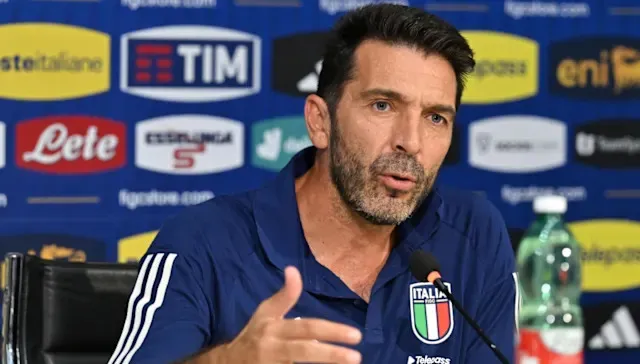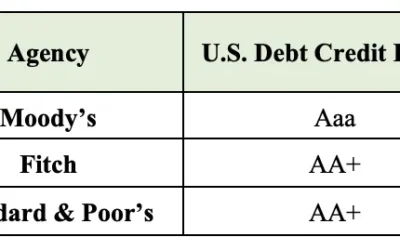Reflections on the 2006 World Cup Final: Buffon and Zidane Share Their Unfiltered Thoughts
The world’s eyes were glued to Berlin on July 9, 2006, as two football powerhouses, Italy and France, clashed in the final of the FIFA World Cup. It was a match filled with high tension, emotion, and unforgettable moments that would go down in history. Recently, Gianluigi Buffon, Italy’s legendary goalkeeper, and Zinedine Zidane, French football’s iconic playmaker, reflected on that fateful day, bringing back memories of triumph, despair, and controversies. The most astonishing revelation? Buffon claimed he was like a Video Assistant Referee (VAR) in that high-pressure final.
The Build-Up to the Final
The road to the final was paved with elation and heartbreak for both teams. Italy had a strong squad boasting players like Buffon, Fabio Cannavaro, and Alessandro Del Piero, while France relied heavily on the brilliance of Zidane, who was playing possibly his last professional match. The stakes could not be higher, with both teams eyeing the coveted trophy in front of a global audience.
Buffon’s Eye on the Game
In a recent interview, Buffon reminisced about his experience during the match. “I remember that day vividly,” he started. “Being a goalkeeper gives you a unique perspective on the game. You’re not just focused on your own play but are constantly observing everything around you. It was like being the VAR without the technology.”
Buffon spoke of the pivotal moments in the match, including the penalty awarded to France in the 7th minute after a foul by Fabio Grosso. “I could see the penalty unfolding, and I knew how crucial that first goal would be. I felt the tension in my teammates; it was palpable.” Indeed, Zidane scored with his famous Panenka penalty, sending Italy into a frenzied state of worry.
Zidane’s Magical Touch
On the flip side, Zidane described the euphoric feeling of scoring the penalty that gave France an early lead. “At that moment, everything felt right,” he mentioned. “I had trained for this moment my entire career. What people don’t realize is that scoring that penalty after so much build-up was not just a job; it was an emotion.”
Little did anyone know that the match would soon take an explosive turn. At the 110th minute, with the match locked at 1-1, Zidane made a shocking decision that shocked the footballing world.
The Infamous Zidane Incident
During the extra minutes, Zidane received a red card for headbutting Marco Materazzi after an alleged provocation. Buffon recalled the incident: “When Zidane headbutted Marco, it was one of those surreal moments. I was thinking, ‘Did that really just happen?’” The moment continues to be a highlight—and lowlight—of World Cup lore.
Zidane commented on the incident, “It was a split-second decision fueled by passion and frustration. I never anticipated this would be how my career would end; it was bitter. I had let my teammates and my nation down.”
Controversies: VAR Before It Existed
In light of the current technological advancements in football, Buffon addressed the irony of how the match could have changed if VAR had been introduced back in 2006. “If there was a VAR back then, things might have unfolded very differently. Not just with Zidane’s red card but also with the possible fouls throughout the match.”
Zidane concurred, stating, “Players can get lost in the heat of the moment, and having that additional layer of scrutiny may have offered a fairer playing field. However, that’s football. We must accept what happened.”
The Second Half of Drama
After the expulsion of Zidane, the match turned more challenging for France. Buffon and his teammates capitalized on the advantage, solidifying their defense. “I think our experience played a massive part. We knew what to expect and adjusted quickly. It was about keeping calm under pressure,” Buffon noted.
As the match reach its nail-biting climax, with Italy pushing for more and France defending valiantly, it appeared that the game would end in penalties—a chilling prospect for both teams. That tension permeated the stadium as Buffon fiercely focused on stopping any potential French shots. The prospect of penalties held a special weight for the Italian keeper: “That’s a different kind of pressure. It’s about mental fortitude.”
Pens, Glory, and the Trophy
Ultimately, Italy triumphed in the penalty shootout, winning 5-3. As players embraced and celebrated their victory, Buffon described the elation: “Winning a World Cup demands every ounce of effort; when it happens, it’s euphoric.” Zidane, on the other hand, went from jubilance to despair in mere minutes—a rollercoaster of emotions that defines football itself.
“It was heart-wrenching. We gave everything, and it ended in disappointment,” Zidane stated solemnly. “I retired as a player that day, but on that pitch, I learned about resilience and culture—values that go beyond the scoreline.”
Legacy and Moving Forward
As the years have passed since the final, both players have been able to move forward, but the memories will forever be etched in the history of football. Buffon continues to thrive in the sport, contributing his vast experience as both a player and a mentor, while Zidane found success in coaching, passing on the torch of his knowledge to the next generation.
“That day defined my career and shaped how I view sportsmanship and competition,” concluded Buffon. Zidane nodded with agreement, adding, “Football is a beautiful game because of the stories it tells, and this moment is a part of mine.”
Conclusion
The 2006 World Cup Final continues to resonate in the memories of fans, players, and analysts. The mix of triumph, tragedy, and controversies paints a captivating picture of the beautiful game. While VAR remains a debated topic in modern football, both Buffon and Zidane’s remarks remind us that every match tells a story—one filled with unscripted moments, human emotion, and the unpredictable nature of sport. It’s the very essence of football, where yesterday’s memories become the foundation for tomorrow’s legends.







